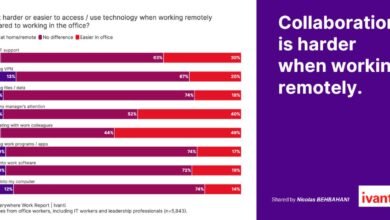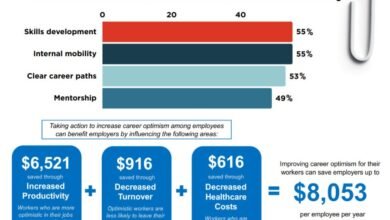
By | EOSDA Company
Space companies are developing and striving for new frontiers. However, NASA and private space companies are not only opening new horizons in the outside world but also providing jobs on our planet. According to The Space Report, the number of investments and employees in the cosmic industry has increased even during the pandemic.
The space industry offers many opportunities for professional development in various fields, including communications and astrophysics. Most jobs were created in such sectors as producing equipment for wireless communication, spacecraft, broadcasting, and guided missiles. In 2020, about 150 thousand people were employed in astronautics. Moreover, jobs in the space industry are also provided to geologists, electricians, scientists, and engineers.
What is the Space Industry?
The economic activity associated with the manufacture of equipment and its delivery to the Earth’s orbit and beyond, as well as related services, is called the space industry. The space industry is synonymous with the term satellite industry. In a broad sense, the space industry is companies that provide goods and services, including geospatial data analysis, that are related to space.
This sector includes two directions: Upstream and Downstream. The first direction is connected with space systems and the delivery of things into space. The second direction is the delivery of technologies used in space to Earth.
First, data is delivered to our planet from space, which is used in various ways. One way is to use it for commercial purposes. For example, for farmers, data plays a vital role in tracking the status of crops and estimating yields. You can find out more about farmers using satellite technologies on official site. Consumer use of this sector includes mobile phone networks, navigation, satellite TV, and more. Satellite data and geospatial data analytics are also used for security by the defense sector and public users for weather data, warnings, and management of natural disasters and extreme weather. Furthermore, this technology is key to early detection of potential threats, including the threat of wildfires.
EOS Data Analytics Shares its Approach to Select Employees
EOS Data Analytics is a global space technology company that provides AI-powered geospatial data analysis in agriculture, forestry, and about 20 other industries. The company combines innovative technologies, including artificial intelligence algorithms, to get valuable information from satellite imagery.
The obtained information helps to remotely evaluate the state of crops in the field and the trees in the forests and identify potential threats. Thus, the products by EOSDA help make agricultural and forestry management more accurate and sustainable, increasing farm productivity and supporting the critical role of forests in the climate system.
EOS Data Analytics collaborates with and values professionals ready to apply innovative methods to move towards an environmentally and socially sustainable future and solve pressing global problems. Several important principles guide the company when choosing projects and setting goals.
The company’s fundamental principles are technology as a Humankind Service and commitment to customers. Furthermore, EOS Data Analytics is committed to the values of professionalism, meaningful communication, rationality, knowledge, and balance. The company makes substantial efforts to give employees an opportunity to use their potential and develop, as the driving force behind EOS Data Analytics is people.
What Does EOSDA Offer to its Employees?
EOSDA is committed to maintaining a caring and comfortable environment for its employees, conducive to their professional growth. Employees are offered social guarantees, conditions for maintaining physical health and activity, and spacious offices for comfortable work. To support companionship, development, and interaction within the team, EOSDA provides a corporate library from which professionals can continuously draw knowledge and mentoring programs. The company also offers extensive opportunities for attending professional conferences by employees of all departments and advanced systematic training.
Employees are offered competitive financial rewards as well as salary reviews based on their progress and achievement. As for social guarantees, workers have access to health insurance, parental benefits, sick leave, the ability to work remotely, and much more. An essential advantage for EOS Data Analytics employees is compensation for language courses and sports sections.
What Specialties Exist in Space Companies?
Entering the space business sector, including jobs in geospatial data analysis companies, can be done in a proven traditional way through the fields such as mathematics, engineering, and physics, in other words, STEM subjects. At the university, you can continue to study these subjects, as well as astrophysics, electronic, mechanical, or aerospace engineering, and computer science. Communication, politics, law, and business knowledge are also essential in current space roles. The space industry is also associated with biology, geography, geology, chemistry, and psychology.
If you did not receive the diploma, related to those disciplines, it does not mean that the door to the space business is closed for you. Employers also appreciate the experience of participating in various competitions and hackathons, and volunteer experience. In addition, Airbus and Rolls-Royce, significant players in the aerospace and space sector, offer student internships and other types of training. Knowledge can also be obtained at various conferences and educational events, many of which take place online such as the Online GIS courses. If you cannot afford to buy a ticket to offline events, you can become a volunteer and also gain valuable experience.
The space industry offers the following positions and roles in space:
- Engineers are engaged in designing and manufacturing various equipment, including satellites and spacecraft.
- IT: development of software and its implementation in the management of equipment, as well as monitoring the operation of spacecraft, weather analysis, communications, and navigation.
- Scientists and space doctors.
- Non-technical jobs: sales, business, journalism, tourism, insurance, etc.
Conclusion
The space sector is rapidly developing and growing. This sector’s growth is associated with innovations that enable us to explore the outside world and provide data for everyday life on Earth. Satellite data is used in many areas of human activity, allowing them to increase productivity, optimize management and bring many other valuable benefits.






